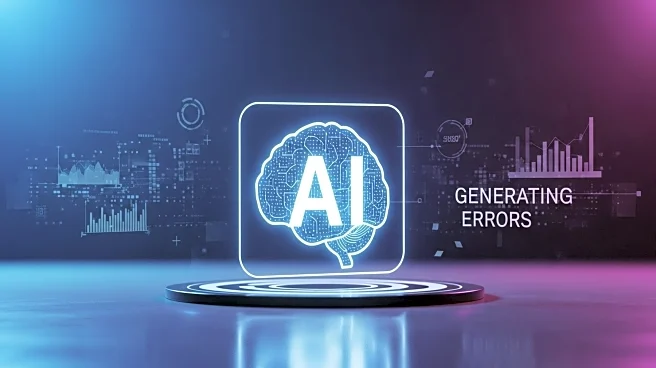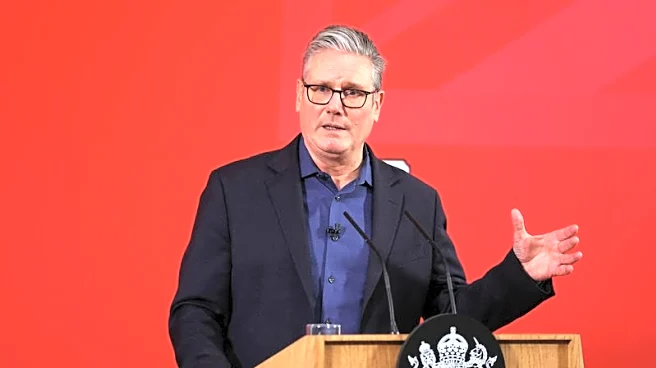What is the story about?
What's Happening?
A report commissioned by the Australian government from Deloitte has come under scrutiny after law professor Chris Rudge from Sydney Law School identified numerous fabricated references within the document. The report, which cost the government 440,000 Australian dollars, was intended to address the use of automated penalties in Australia's welfare system. Rudge discovered approximately 20 errors, including a suspicious citation to a colleague, Lisa Burton Crawford, and fabricated case law. Deloitte has since re-issued the report, acknowledging incorrect footnotes and references, and disclosed the use of Azure OpenAI in its creation. The firm has agreed to refund part of the payment to the government.
Why It's Important?
The incident highlights significant concerns about the reliability of AI-generated content, especially in official documents that influence public policy. The use of AI in generating reports can lead to misinformation if not properly vetted, potentially impacting decision-making processes. This case underscores the need for rigorous oversight and verification of AI outputs, particularly in government and legal contexts. The situation has prompted calls for accountability, with Australian Senator Barbara Pocock demanding a full refund and criticizing Deloitte's misuse of AI, likening the errors to those that would be unacceptable even for a first-year university student.
What's Next?
Deloitte's response to the incident includes a partial refund and a commitment to resolve the matter directly with the client. However, the broader implications may lead to increased scrutiny of AI's role in generating official documents. There could be calls for stricter guidelines and standards for AI use in government reports to prevent similar issues in the future. Stakeholders, including policymakers and legal experts, may push for more transparency and accountability in the use of AI technologies.
Beyond the Headlines
This incident raises ethical questions about the reliance on AI for critical tasks and the potential for technology to mislead if not properly managed. It also highlights the importance of human oversight in AI applications, especially in areas with significant societal impact. The case may influence future discussions on the integration of AI in professional and governmental settings, emphasizing the balance between technological advancement and ethical responsibility.

















